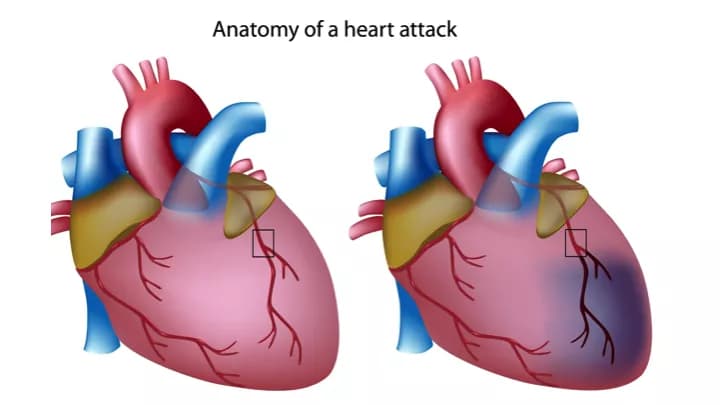
A Bioactive Molecule May Protect Against Congestive Heart Failure After Heart Attacks
Heart attacks provoke an acute immune response. Leukocytes rush to the heart muscle to remove dead cells and begin building scar tissue. This is followed by a second immune response, the resolving phase that allows healing.
Too often, though, low-grade acute inflammation continues in patients long after heart attacks, leading to chronic heart failure and death. In a paper published in Scientific Reports, Ganesh Halade, Ph.D., and colleagues show that giving mice a form of the fatty acid-derived bioactive molecule called lipoxin improved heart function after a heart attack, as the lipoxin prompted early activation of the resolving phase of the immune response without altering the acute phase.
This suggests lipoxin may have high therapeutic potential to limit the edema of the heart's left ventricle that leads to congestive heart failure and death. Some 2 to 17 percent of patients die one year after a heart attack, and more than 50 percent die within five years.
Halade, an assistant professor in the University of Alabama at Birmingham Department of Medicine, used a form of lipoxin called 15-epimer lipoxin A4, which is also known as aspirin-trigger lipoxin A4. The lipoxin -- or the lipoxin packaged inside of liposomes to protect it in the bloodstream -- was directly injected into mice after heart attacks.
The researchers followed the effect of lipoxin treatment by measuring heart function and lung edema; functioning of the spleen and kidneys, organs that are also affected by the acute immune response to heart attacks; neutrophil clearance in the resolving phase of the immune response; the activation or inhibition of receptors on macrophages; changes in pro-resolving gene markers in the left ventricle, spleen and kidneys; changes in interleukin levels; and the transition of fibroblasts into secretory myofibroblasts that deposit collagen and lead to scar formation.
Both lipoxin and the liposome-packaged lipoxin showed beneficial effects.
Key findings were: 1) Lipoxin activated the formyl peptide receptor 2, or FPR2, and GPR120 on reparative macrophages but inhibited GPR40 on inflamed macrophages in petri-dish experiments, 2) Lipoxin-injected mice had reduced left ventricle and lung mass-to-body-weight ratios, and an improved ejection fraction five days after heart attacks, 3) During the first day after heart attack, which is the acute phase of inflammation, lipoxin primed infiltration of neutrophils to the heart with a robust increase of Ccl2 and FPR2 expression, and 4) During the resolving phase, lipoxin initiated rapid neutrophil clearance and persistent activation of FPR2 in the left ventricle.
Of additional interest, lipoxin-injected mice also had less kidney inflammation along with decreased levels of the kidney-injury biomarkers NGAL and KIM-1.
Materials provided by University of Alabama at Birmingham. Note: Content may be edited for style and length.
Disclaimer: DoveMed is not responsible for the accuracy of the adapted version of news releases posted to DoveMed by contributing universities and institutions.
References:
Vasundhara Kain, Fei Liu, Veronika Kozlovskaya, Kevin. A. Ingle, Subhashini Bolisetty, Anupam Agarwal, Santosh Khedkar, Sumanth D. Prabhu, Eugenia Kharlampieva, Ganesh V. Halade. (2017). Resolution Agonist 15-epi-Lipoxin A4 Programs Early Activation of Resolving Phase in Post-Myocardial Infarction Healing. Scientific Reports. DOI: 10.1038/s41598-017-10441-8
Related Articles
Test Your Knowledge
Asked by users
Related Centers
Related Specialties
Related Physicians
Related Procedures
Related Resources
Join DoveHubs
and connect with fellow professionals

0 Comments
Please log in to post a comment.